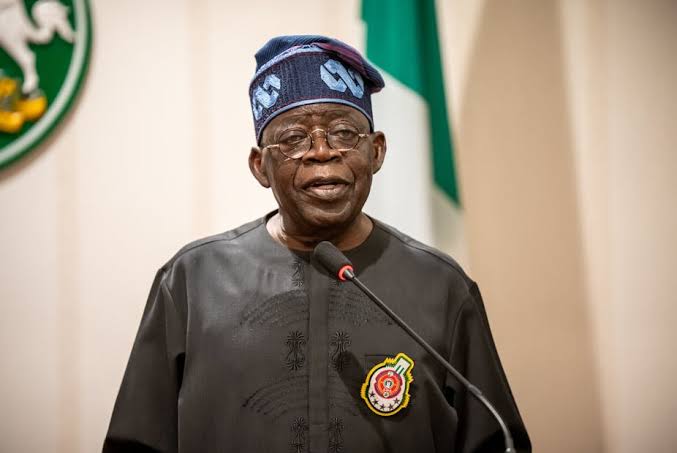WASHINGTON: The United States has announced plans to collaborate with Nigeria’s government to identify and prosecute those responsible for religiously motivated violence, even as China denounced Washington’s move as undue interference in Nigeria’s internal affairs.
This follows President Donald Trump’s designation of Nigeria as a Country of Particular Concern (CPC) a label reserved for nations accused of grave violations of religious freedom. The declaration, made via his Truth Social account on Friday, alleged that Christianity in Nigeria faced an existential threat from extremist groups and warned that the U.S. could take “decisive measures,” including potential military action, if Abuja failed to act.
Chair of the U.S. Commission on International Religious Freedom (USCIRF), Vicky Hartzler, applauded Trump’s decision, saying it would allow Washington to work with Nigeria in holding perpetrators accountable and ensuring the protection of religious minorities.
“The U.S. government can now develop a robust plan with Nigeria to ensure those responsible for violence are brought to justice and those held hostage are rescued,” she said in a statement.
Her deputy, Asif Mahmood, told reporters an email that Nigeria had long failed to curb religiously targeted killings, noting that USCIRF had been recommending the CPC designation since 2009. He cited continued enforcement of blasphemy laws in 12 northern states and multiple attacks against Christian and Muslim communities alike as justification for the move.
In its latest annual report, the Commission highlighted incidents such as the killing of more than 200 people, including displaced persons, in Benue State, and an attack on a mosque in Katsina that left 27 worshippers dead.
“These are ongoing, egregious violations of religious freedom,” Mahmood said, adding that the U.S. government now had legal grounds to impose sanctions under the International Religious Freedom Act.
The U.S. Congress is already reviewing a bill titled the Nigeria Religious Freedom Accountability Act of 2025 (S. 2747), sponsored by Senator Ted Cruz. The proposed law would sanction Nigerian officials, state governors, and judges found complicit in religious persecution or the enforcement of blasphemy laws. The measure has passed second reading and now awaits further consideration by the Senate Committee on Foreign Relations.
Nigeria’s Federal Government has dismissed the U.S. designation as unfounded and inconsistent with reality,” reaffirming its commitment to protecting all citizens and promoting inclusivity.
Minister of Information and National Orientation, Mohammed Idris, told journalists after a briefing with President Bola Tinubu on Tuesday that Nigeria remained calm and open to diplomatic engagement.
“The President is taking a holistic approach to national security, Idris said. We are engaging the international community to clarify what Nigeria has been doing to promote peace, unity, and religious tolerance.
Beijing also waded into the controversy. At a press briefing, Chinese Foreign Ministry spokesperson Mao Ning said China “firmly supports Nigeria and condemned what it called “foreign interference under the guise of religion or human rights.
“As a strategic partner of Nigeria, China believes every nation has the right to pursue its development path free from external pressure, she added.
The Economic Community of West African States (ECOWAS) dismissed claims of genocide against Christians in Nigeria, warning that such rhetoric could deepen divisions and complicate counterterrorism efforts.
“Terrorist violence in the region does not discriminate on the basis of religion or ethnicity,” ECOWAS said, urging the UN and other partners to focus on strengthening security cooperation instead of endorsing divisive narratives.
The European Union also expressed concern but took a more nuanced position, reaffirming its commitment to freedom of religion while warning that Nigeria’s crisis stems from “multiple, overlapping causes — not religion alone.”
Analysts Warn of Geopolitical Motives
A former Chief of Army Staff, Lt. Gen. Abdulrahman Dambazau (rtd), cautioned that Washington’s posture could be tied to broader geopolitical ambitions, including plans to establish a U.S. military base in Nigeria.
“Similar narratives were used to justify the presence of U.S. forces in Niger, yet insecurity there worsened,” Dambazau said in Abuja. “Nigeria must guard against foreign manipulation of its internal challenges.”
He emphasised that terrorism in Nigeria affects both Muslims and Christians, driven more by weak state capacity and socioeconomic failure than by faith-based hatred.
Regional and Local Reactions
Leaders of the Southern and Middle Belt Forum (SMBLF) described the U.S. designation as a “wake-up call” for the Federal Government to confront ongoing killings and disarm violent groups.
In a communiqué signed by Oba Oladipo Olaitan, Dr. Bitrus Pogu, Senator John Azuta-Mbata, and Ambassador God knows Igali, the forum urged President Tinubu to reform the security architecture further and release detained IPOB leader Nnamdi Kanu as a step toward national reconciliation.
Former Sokoto State Governor, Attahiru Bafarawa, advised Tinubu to avoid confrontation with Washington, stressing that diplomacy should prevail.
Similarly, the Yoruba Ronu Group condemned Trump’s provocative rhetoric, warning that U.S. intervention in other nations has often led to instability.
Nigeria will not be their next experiment, the group declared.
Civil society groups, meanwhile, faulted the federal government’s failure to appoint ambassadors amid the crisis, describing the lapse as a diplomatic vacuum.
They urged Tinubu to counter U.S. claims with verified data and renewed outreach to religious leaders to demonstrate Nigeria’s long-standing pluralism.
Minister Idris reaffirmed that President Tinubu remains committed to protecting all faiths, saying, Nigeria is home to Muslims, Christians, and people of no faith our Constitution guarantees religious freedom, and the President will uphold that fully.
He called on citizens to reject extremist propaganda and support the government’s ongoing security reforms.
Yes, we have security challenges, Idris admitted, but there has never been any policy to favour one religion over another. This is a time for unity, not division.



